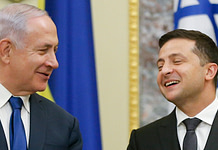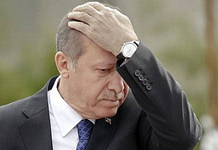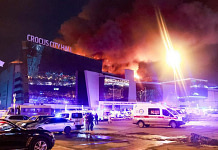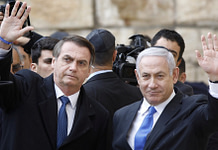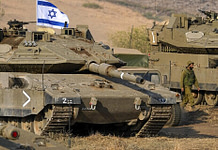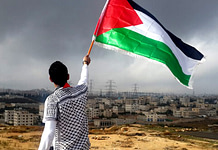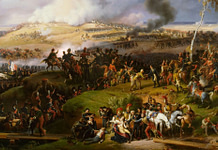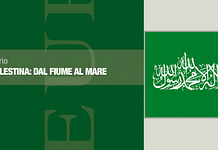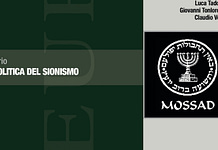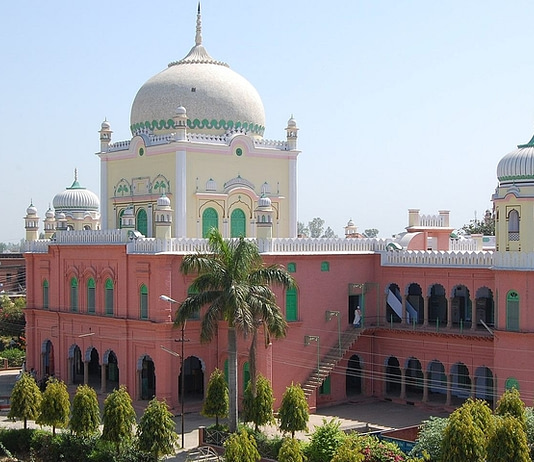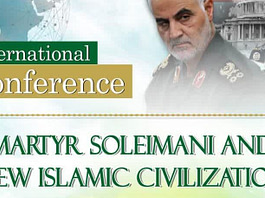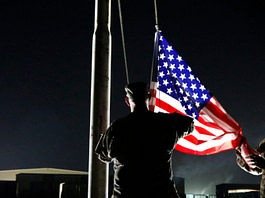Indian Autonomy and Multipolar Context
In spite of its great climatic and geo-morphologic heterogeneity, of its diverse ethnic groups, of its large variety of cultures and religions, and of the consequent lack in socioeconomic homogeneity, India seems to have successfully followed the rule that made the ancient Empires great, i.e. the preservation of unity in diversity. The efforts currently led by India to maintain its independence, its unity and economic and industrial development will be winning, in the medium and long term, only if New Delhi will focus its geopolitical interests on the framework of a Eurasian and multipolar perspective. Such perspective, in fact, would solve its choice between being a mere regional power with international aspirations or a global power with regional interests.
The other Sakinehs
Those women don't have oriental names, are not Muslim and don't carry a veil on their heads. Strikingly, that seems sufficient so that millions of “human rights activists” that cry shame for Ms. Ashtiani, take no interest in their cause. here’s no difficulty in understanding why leading media of NATO countries have given so much emphasis (and distortion) to Ashtiani affair, while with unbelievable coldness they have been silent of Lewis case until a few days before execution. There’s no difficulty in understanding why Western public opinion easily mobilize to defend a condemned in a Muslim country, but ignore her counterpart in a Christian one. Because it is easier to see the straw in someone else’s eye, that admit to have a beam in one’s own.
Geopolitics of Republican Italy
Defeated during the Second World War, occupied by the United States after its liberation, integrated into NATO by force during the Cold War, compelled to dissolve into the European Union, Italy is today a prisoner of its past while international relations are speeding ahead. According to Tiberio Graziani, even though Rome may not yet be in a position to frame an independent foreign policy, the time is ripe to start contemplating an exit strategy in keeping with its historical and geographical characteristics. Italy feels the call of its natural environment … the wide Mediterranean sea.
U.S. strategy in Eurasia and drug production in Afghanistan
In order to address properly, without any ideological prejudice, but with intellectual honesty, the question about drug production in Afghanistan and the related international problems, it is necessary and useful to define (even if in broad terms) the geopolitical framework and to further clarify certain concepts, usually assumed to be understood and widely shared.
Italy and Russia: a strong partnership
Over the last few years the relationships between Russia and Italy have achieved excellence and among European Union countries Italy is the one whit...
«The battle between geopolitics and oligarchies. This is how the Kirghizstan crisis developed»
A power struggle between local oligarchies and a variable element in the “Great Game” being played out in Central Asia between America, Russia and China. This is the opinion expressed by Tiberio Graziani, editor-in-chief of the geopolitical magazine Eurasia, on the recent political turbulence in Kirghizstan. At the beginning of April President Kurmanbek Bakiyev was removed from power following a series of revolts and street clashes marked by violence with at least 80 people killed and over 500 wounded. Five years ago it had been Bakiyev himself, who has now taken refuge in Minsk under the protection of the Byelorussian head of state Aleksander Lukashenko, who had come to power using street protests in which a number of people were killed, removing his predecessor Askar Akayev after what was renamed the “Tulip Revolution.”
Answer to Professor P. Kelly
Professor Philip Kelly, respected expert in geopolitics, have done an interesting review of Tiberio Graziani's paper published in no. 1/2010 of Italia “Eurasia” journal. In his opinion, world isn't multipolar but still unipolar, Russia isnt' able to involve other continental poles in a common geopolitics of Eurasian safety which exclude Thalassocracy, European Union deserve to be included among hegemonic players more than others, in particular than India, Latin America hasn't an important role in world geopolitics. Here the answer by T. Graziani and D. Scalea.
Some Geopolitical Remarks on the Arctic Region
The geopolitical history of the Arctic can be divided, in a preliminary approximation, into at least three cycles. A first great cycle, which we can call the cycle of great exploration and of the initial Arctic maritime activity (maritimisation) can be defined starting around 1553, that is, when the English navigator Hugh Willoughby began searching for a North-East passage, and going to the second half of the 1820s. With the new entrant in the circum-polar navigation club, frictions arose that marked the successive phase of the geopolitical history of the Arctic. This is the cycle of sovereignty or territorial claims, which began in 1826 with the delimitation of the frontier and terminated in 1991 with the dissolution of the USSR. The third cycle, which we can define as Arctic regional identity or multilateralism, placed between 1990 and the first years of this century, is marked by Moscow’s slight commitment – geopolitically fallen back into itself after the collapse of soviet structure – in supporting its own regional interests, by the renewed tensions between Canada and the US, by the timid presence of the European Union, which states the so-called policy of the Nordic Dimension, and, in particular, by some international or multilateral initiatives.
Russia Keystone of the Multipolar System
The new multipolar system is being consolidated. The main actors are the US, China, India and Russia. While the European Union is completely absent and in hiding in the framework of indications-diktats coming from Washington and London, some South American countries, particularly Venezuela, Brazil, Bolivia, Argentina and Uruguay, are showing their steady willingness to actively participate in the construction of the new world order. Russia, with its central position in the Euro-Asian land mass, its vast size and its current orientation stamped on foreign policy by the Putin-Medvedev tandem, will probably be the keystone in the new planetary structure. But to achieve this epochal function, it must overcome some internal problems: first of all, those regarding the demographic question and the modernization of the country, while on the international level it must consolidate relations with China and India and establish strategic agreements with Turkey and Japan as soon as possible. Above all, it must clarify its position in the Near and Middle East.
Afghanistan 1979. The Destabilization of the Near- and the Middle-East Regions and the Collapse...
Among the many events in international relations, two are, in our opinion, of pivotal importance for their contribution to the upsetting of the former geopolitical asset, based at the time on the conflict between the United States and the URSS. We are speaking of the Islamic revolution in Iran and of the Russian military involvement in Afghanistan. Following the takeover of Iran by the Ayatollah Khomeyni, one of the essential pillars of the western geopolitical architecture, with the USA as a leader, was destroyed. The Washington strategists, in agreement with their bicentenary “geopolitical of chaos”, persuaded the Iraq under Saddam Hussein to start a war against Iran. The destabilization of the whole area allowed Washington and the Western Countries enough time to plan a long-lasting strategy and in the meantime to wear down the soviet bear.


